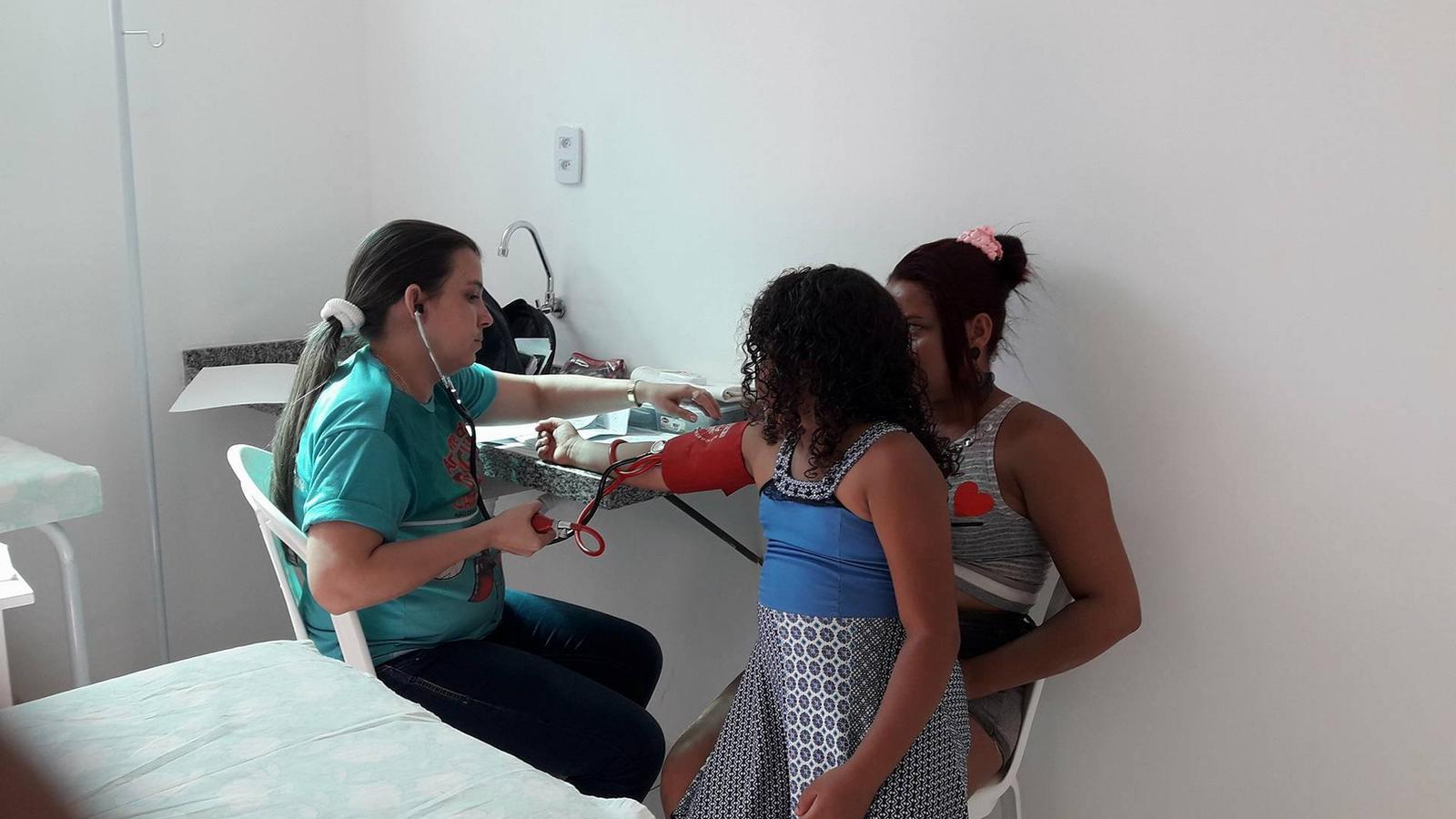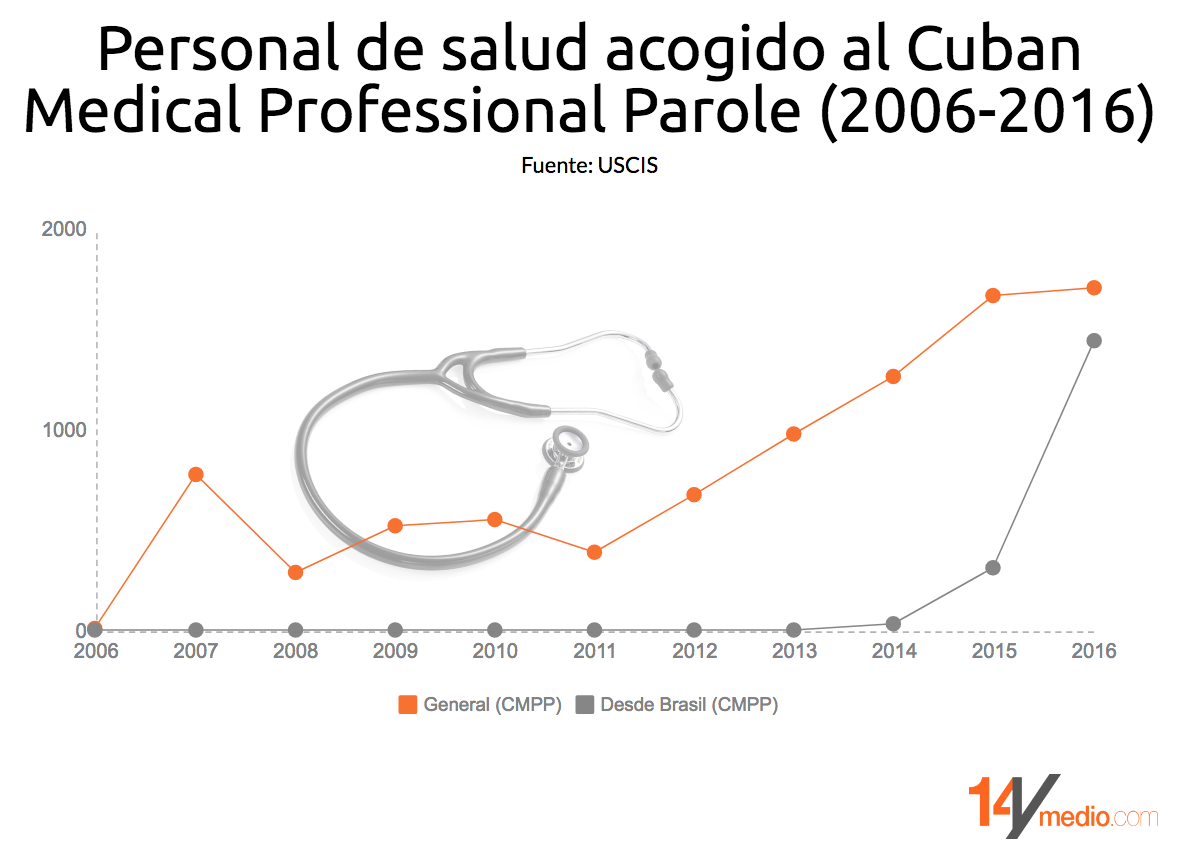
![]() 14ymedio, Mario Penton, Miami, November 24, 2017 – The new immigration law which takes effect this Wednesday in Brazil could benefit hundreds of doctors who have escaped from the Mais Medicos (More Doctors) mission in this country.
14ymedio, Mario Penton, Miami, November 24, 2017 – The new immigration law which takes effect this Wednesday in Brazil could benefit hundreds of doctors who have escaped from the Mais Medicos (More Doctors) mission in this country.
According to André De Santana Correa, a lawyer who represents 80 doctors from the Island who abandoned their mission, “the new law allows several types of protection for a Cuban doctor who is considered a deserter, on humanitarian grounds.”
De Santana told 14ymedio that he counsels all Cuban doctors who have an expired temporary visa for Brazil that they request “permission for residence with a temporary visa on humanitarian grounds.” The authorities can take into account that these professionals are prohibited from returning to Cuba for eight years, because they are considered deserters there.
“The Cuban Government’s decision to consider doctors who abandon their missions as deserters is much more than political persecution. It’s the most merciless cruelty because of what can happen to a human being who is taken away from loved ones and his native land and, in addition, is left completely powerless, as if his life isn’t worth anything,” adds De Santana.
The new Migration Law guarantees the same rights to foreign residents as to native-born Brazilians and also facilitates the arrival of qualified workers in the country. The legislation replaces the Foreigners Statute, which dates from the time of the military dictatorship (1964-1985). It allows foreigners with higher education or the equivalent to work in Brazil without needing to have a formal employment request from a company in the country.
Official statistics state that between 2010 and 2015, the number of foreign employees increased some 131%, going from 54,333 workers to 125,535, less than some 0.5 percent of the formal work market.
“We hope that with this new law our process will continue. There are many Cuban doctors in Brazil who need this country to recognize that we are health professionals who have equal status with the doctors of other countries who are in the More Doctors program,” says Ernesto Ramírez, a health specialist who left Havana’s supervision.
Noel Fonseca, who has spent more than 20 years as a doctor and decided to stay and live in Brazil, said that he is hopeful about the new law. He, as well as his wife, were expelled from the More Doctors program for not supporting the Cuban Government. The authorities in Havana, in addition, told them that they couldn’t return to the country for eight years, and that Brazil wouldn’t allow them to work as doctors because of pressure from Cuba.
“The Cuban Ministry of Public Health threatened the Brazilian Government so that they wouldn’t permit us to stay in the More Doctors program if we deserted the mission. In turn, the Ministry of Health pressured the municipalities to not give any type of aid to the doctors,” explained Fonseca, by telephone.
While the Cuban Medical Professional Parole was in effect, the United States allowed doctors who abandoned Cuba’s official missions to emigrate legally to the U.S. During that period (2006-2016), more than 8,000 doctors benefited from the program, which was eliminated in January, 2017.

Diana Quintas, a lawyer from the Fragomen firm in Brazil, told Agencia EFE recently that the new law “has gaps,” and that in matters such as work, the joint action of several ministries would be required.
In addition, in order to seek employment without a work offer in the South American giant, professionals from Third World countries would have to have a university degree in “professions strategic for Brazil,” without specifying what these professions are.
Many other analysts criticize putting this legislation into effect at a time when unemployment is increasing in the country and when, in practice, many of the essential services that they want to offer to immigrants Brazilians themselves don’t have.
Translated by Regina Anavy
______________________________________
The 14ymedio team is committed to serious journalism that reflects the reality of deep Cuba. Thank you for joining us on this long road. We invite you to continue supporting us, but this time by becoming a member of 14ymedio. Together we can continue to transform journalism in Cuba.
